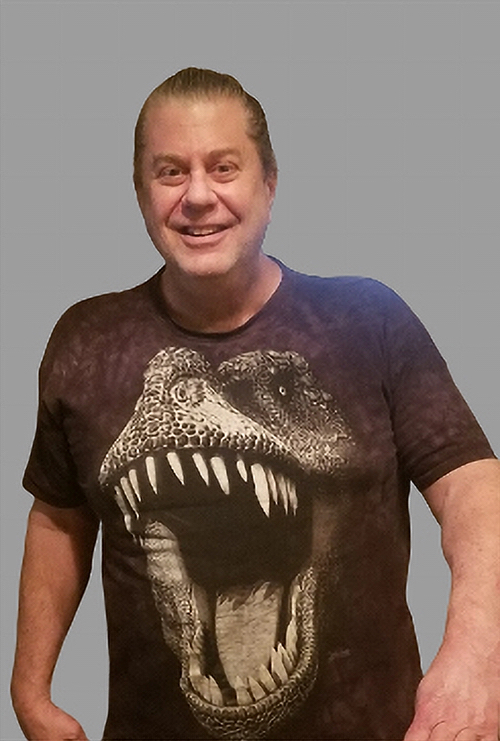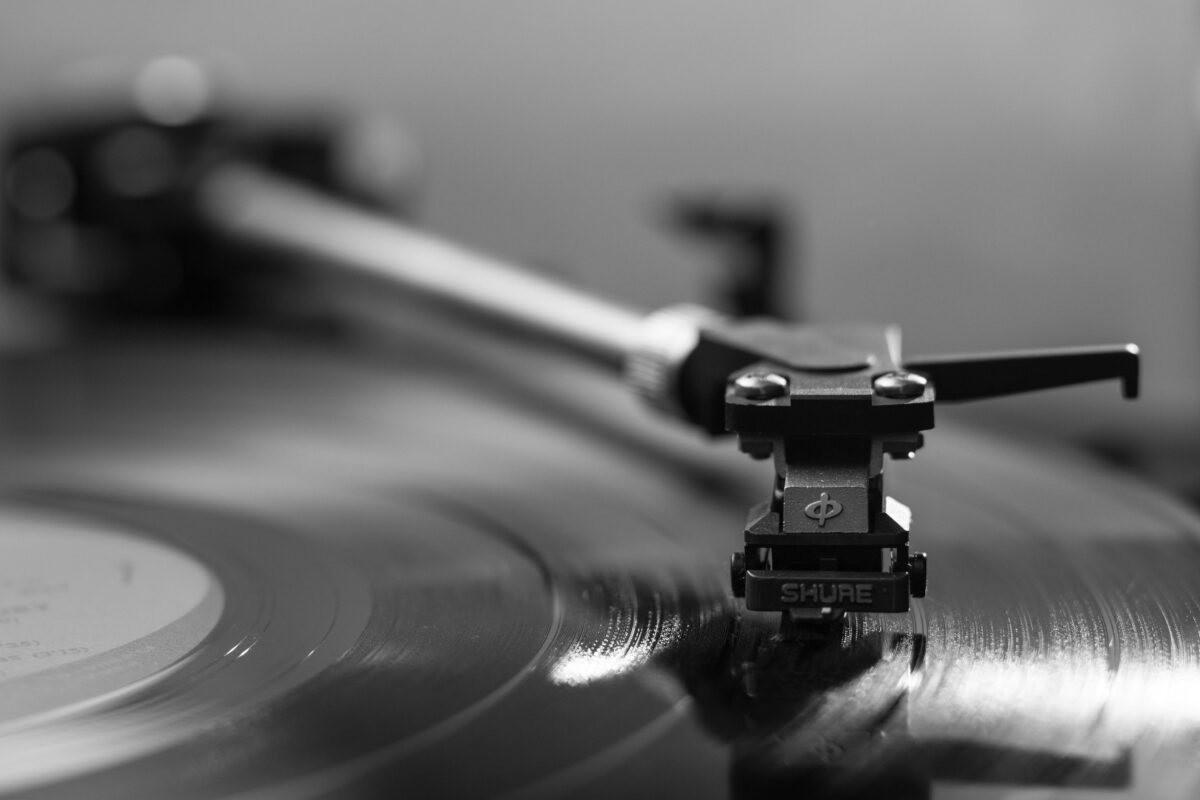
What ignited your interest in the high end? Did it come from the music side or the electronics side?
I started from the music side. I grew up listening to records with my mom, and at 12 bought my first small system. I came to the electronics side after discovering that better sound really does make the listening experience that much better.
What gear made up your first high-end system?
A cheap and cheerful Radio Shack system that I used to play records, bought with lawn-mowing money. For years, I spent far more on records than on gear, going through various mass-produced consumer-electronics systems of medium price, finally ending up with an excellent system based around Shahinian Hawk speakers, Plinius electronics, and a Kuzma turntable and ’arm (of course), with many different phono cartridges. My wife and I listen to records (and digital) through this system to this day, with no plans to change anything. I am not one who is always on the upgrade path. I feel that if I have a sonically satisfyingly, musically natural system, I can play music and enjoy it without the angst of wondering if my gear is “the best.”
When did audio develop from a hobby to a career?
I met Harry Pearson in 1988 after writing letters to the editor over the years and was invited to his 1991 friendship party. Frank Doris hired me to be HP’s set-up man later that year, and I was hooked and never looked back.
What were your duties and responsibilities as HP’s setup man, and how long did you work with him?
My main responsibilities were to request and arrange for deliveries and set up new review products, getting them inserted into the existing reference system to optimize performance and integration, and then listen with him and go through many substitutions and different set-up variations to get the full measure of the equipment in question. I would also brainstorm with him when he was going to write a new essay or big review to help him with structure and insights for the article. He taught me almost everything I know about critical listening. Victor Goldstein did the rest. I worked for Harry twice over the years for a total of about 10 years together, and I still miss him.
What does “high-end” audio mean to you? Has the meaning changed for you over the years?
High-end audio is to me now and has always been as HP first envisioned it: the best possible performance in reproducing recorded music without regard to anything other than what is heard. High end is not about money, per se; it is, rather, about being able to listen and get the desired emotional response, whether the playback gear is over the top expensive or not. It is about getting to the essence of what music sounds like and how it makes you feel.
Do your own listening biases play a role in terms of the audio lines you represent?
Yes. I am a stickler for authentic dynamic contrasts and a realistic tonal balance, above all else. A reasonably realistic 3-D soundstage adds considerably to the effect. Kuzma, l’Art du Son, and Furutech make products that allow these things to become reality, so that the listener can be more at one with the music, and that drives me to help these companies succeed.
What are the greatest challenges confronting the high-end business in the next few years?
I agree with the consensus that if we are to survive and flourish, then we need more young listeners who can help spread the word that well-reproduced music is essential to our overall health and well-being. It would not hurt if more designers turned to making excellent but not crazily priced gear, as a few companies such as Schiit Audio and NAD do. Those guys understand that one doesn’t have to spend huge amounts on a system to be able to get a convincing facsimile of the real thing.
Outside of audio, what do you do for fun?
I very much like to cook and read books, mainly exciting action fiction. Food feeds the body, and words and concepts shape the mind. Add music and the magical trifecta is there.
What inspires you about your work?
I continue to be surprised and gratified by how much better music playback has gotten over time, and that the closer I stay to music the better my entire life is.

By Neil Gader
My love of music largely predates my enthusiasm for audio. I grew up Los Angeles in a house where music was constantly playing on the stereo (Altecs, if you’re interested). It ranged from my mom listening to hit Broadway musicals to my sister’s early Bob Dylan, Joan Baez, Beatles, and Stones LPs, and dad’s constant companions, Frank Sinatra and Tony Bennett. With the British Invasion, I immediately picked up a guitar and took piano lessons and have been playing ever since. Following graduation from UCLA I became a writing member of the Lehman Engel’s BMI Musical Theater Workshops in New York–working in advertising to pay the bills. I’ve co-written bunches of songs, some published, some recorded. In 1995 I co-produced an award-winning short fiction movie that did well on the international film-festival circuit. I was introduced to Harry Pearson in the early 70s by a mutual friend. At that time Harry was still working full-time for Long Island’s Newsday even as he was writing Issue 1 of TAS during his off hours. We struck up a decades-long friendship that ultimately turned into a writing gig that has proved both stimulating and rewarding. In terms of music reproduction, I find myself listening more than ever for the “little” things. Low-level resolving power, dynamic gradients, shadings, timbral color and contrasts. Listening to a lot of vocals and solo piano has always helped me recalibrate and nail down what I’m hearing. Tonal neutrality and presence are important to me but small deviations are not disqualifying. But I am quite sensitive to treble over-reach, and find dry, hyper-detailed systems intriguing but inauthentic compared with the concert-going experience. For me, true musicality conveys the cozy warmth of a room with a fireplace not the icy cold of an igloo. Currently I split my time between Santa Fe, New Mexico and Studio City, California with my wife Judi Dickerson, an acting, voice, and dialect coach, along with border collies Ivy and Alfie.
More articles from this editor

















![Bill Callahan: YTILAER [REALITY]](https://www.theabsolutesound.com/wp-content/uploads/2023/06/Bill-Callahan-YTILAER-REALITY-300x300.jpeg)



